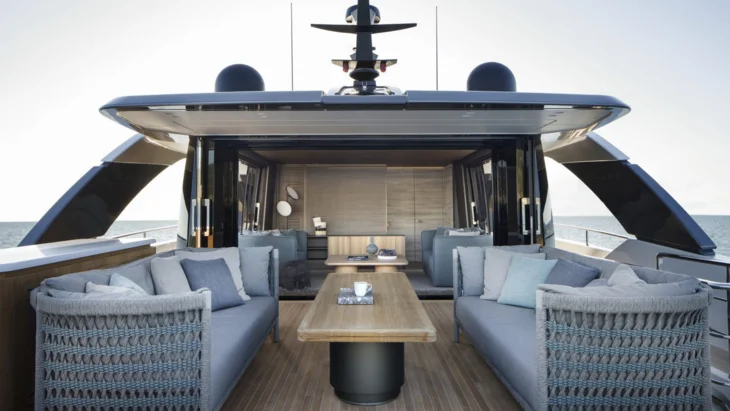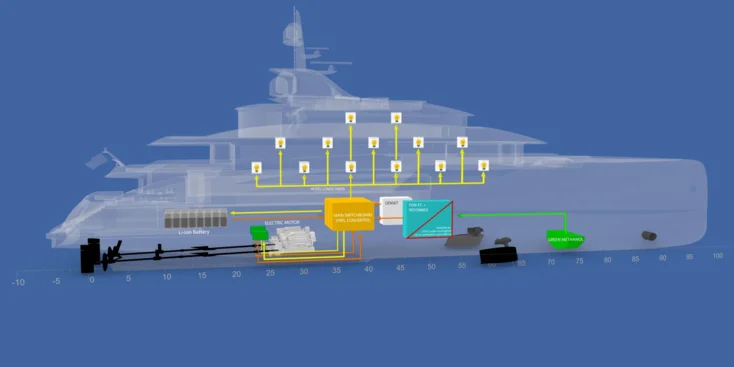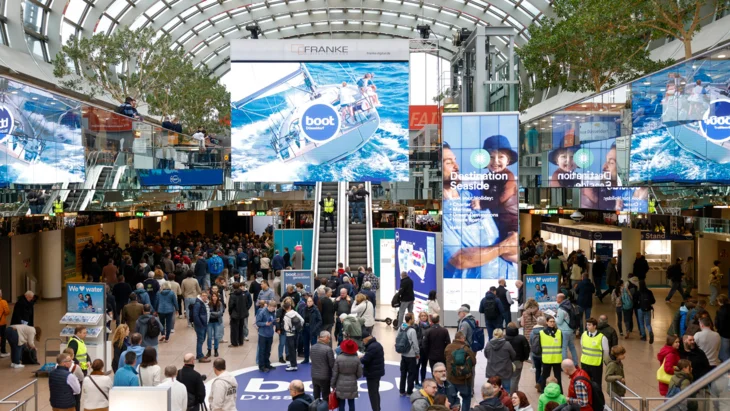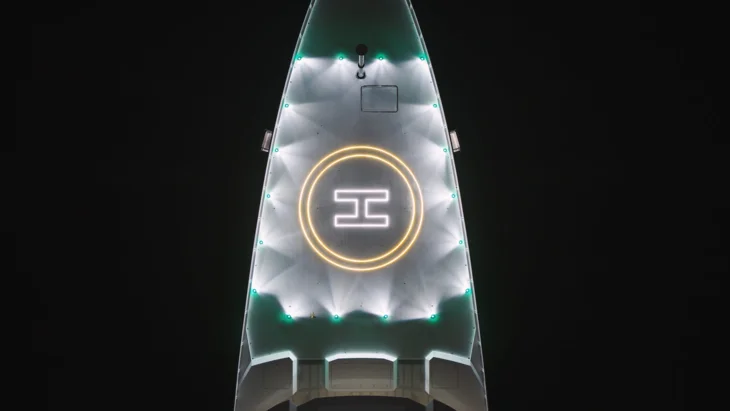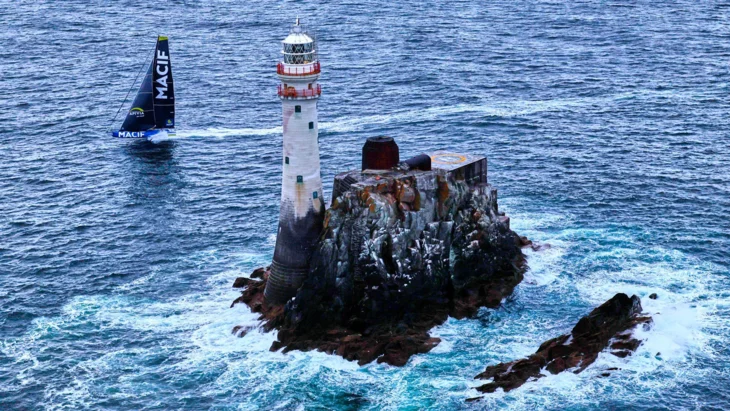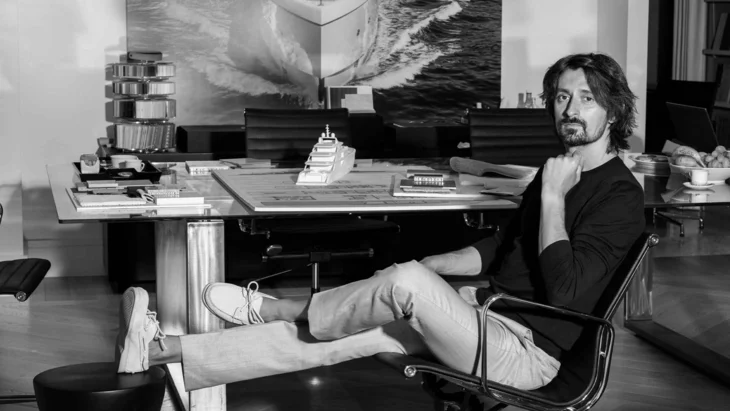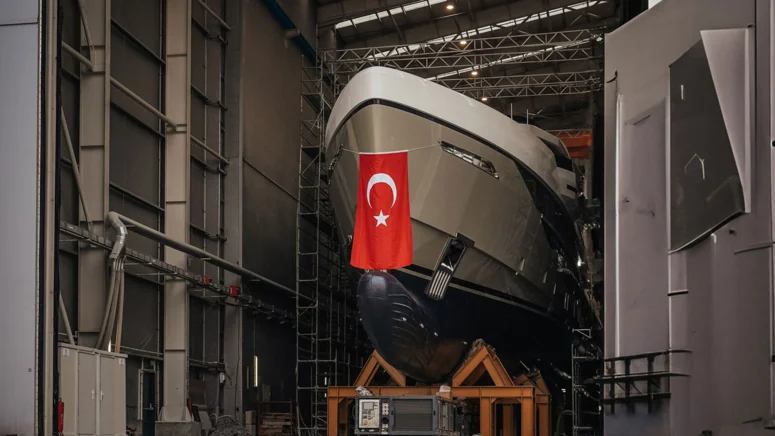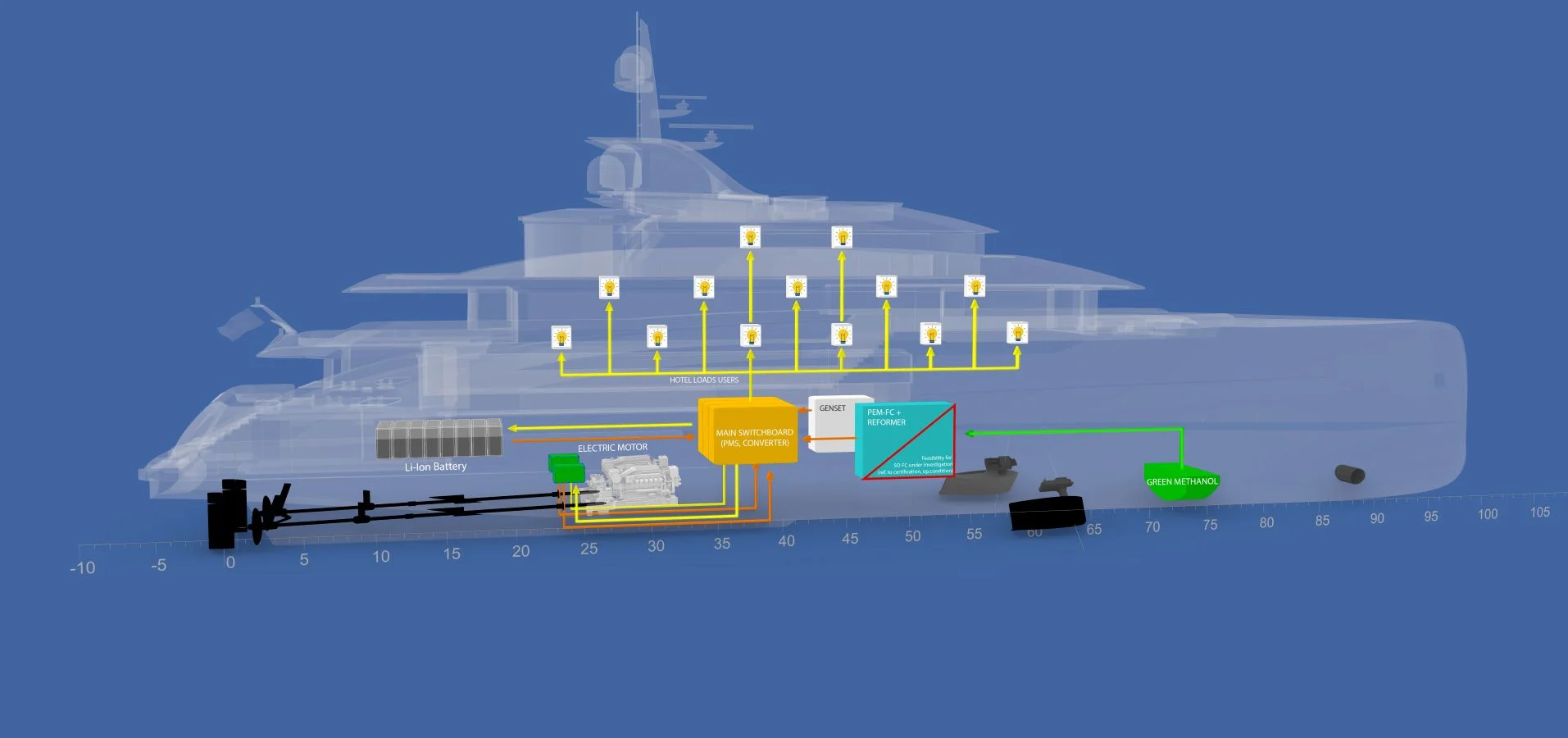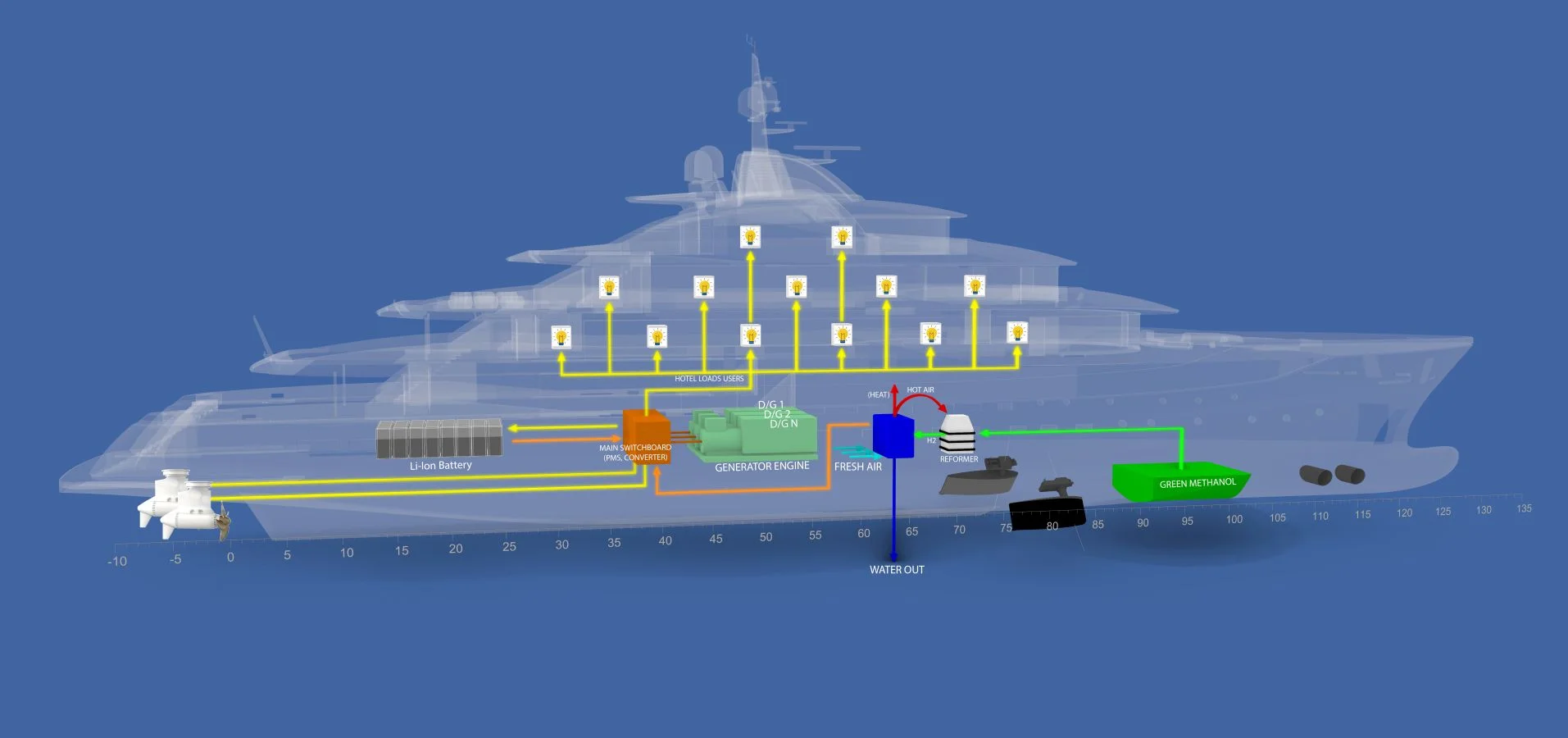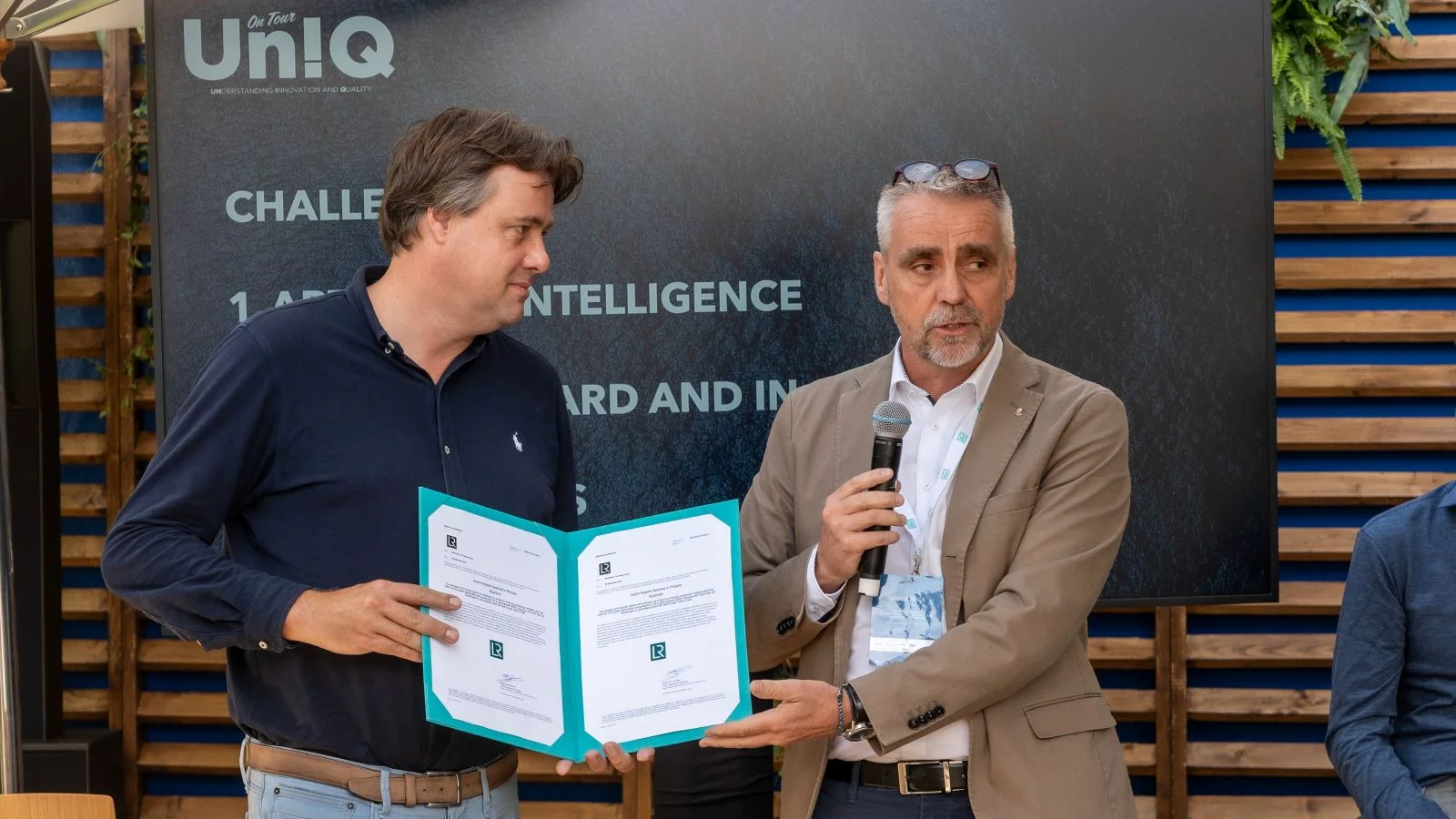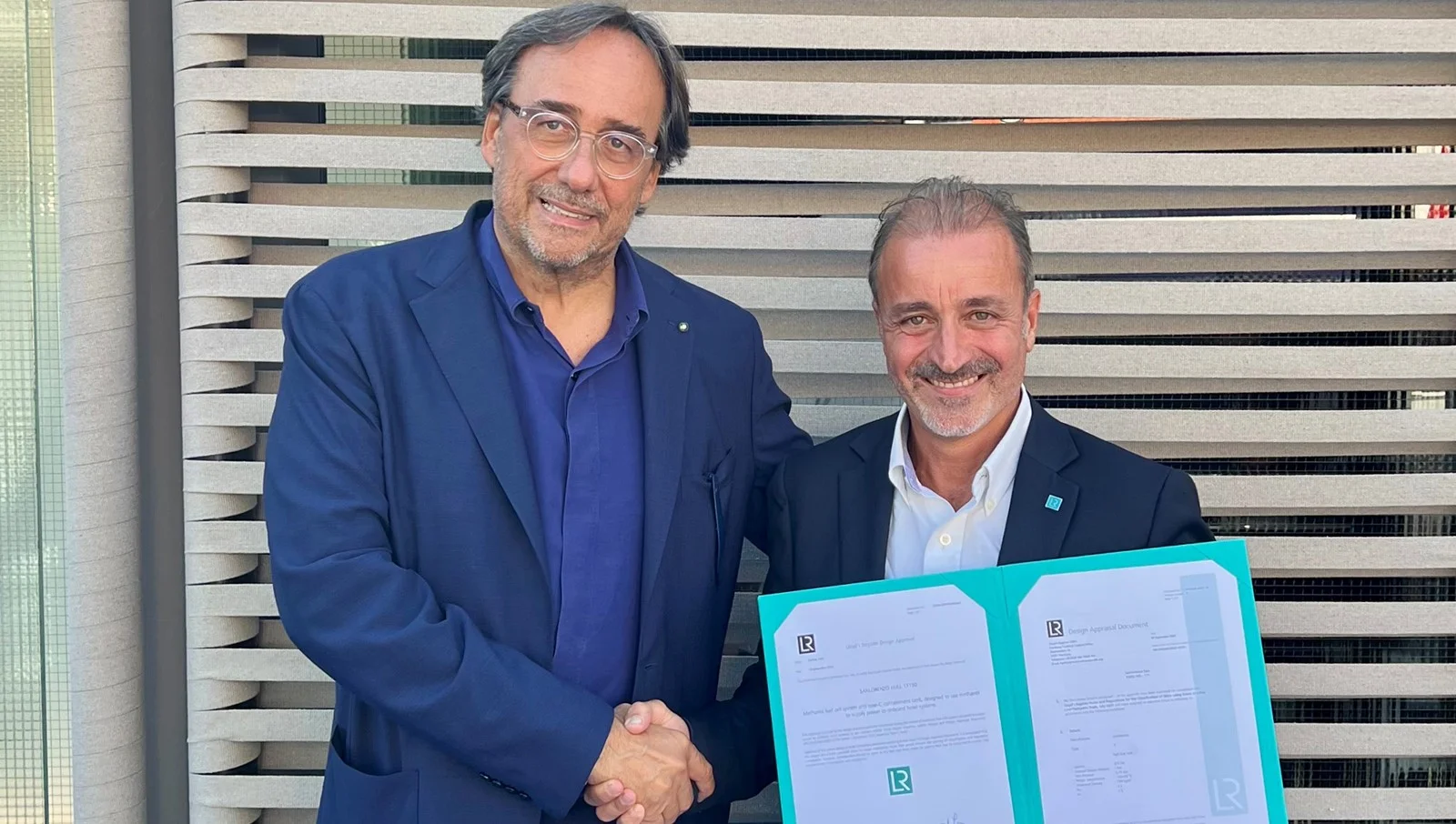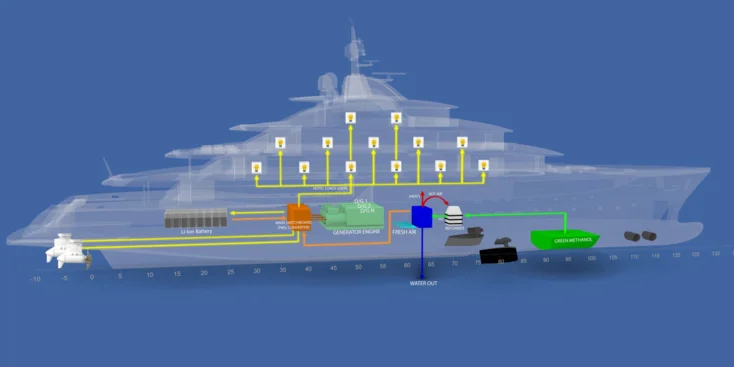
Many people treat the idea of reaching carbon neutrality throughout the global economy quite skeptically, and not without a reason
The initial plan to achieve this goal by 2030 seems to have failed, which is confirmed by the fact that it has been rescheduled for approximately 2050 (on average, as it may vary depending on the country and declared indicators that were planned in terms of decarbonization). However, in the yachting industry making progress in this direction can be seen quite clearly and it is gaining more or less distinct (although very diverse) outlines. Not long ago three major shipyards specializing in superyacht construction (the Italian Sanlorenzo and CRN and the Dutch Feadship) got certificates for their new developments in the area of eco-friendly power plants and sustainable fuels.
During a recent Monaco Yacht Show 2023 Lloyd's Register approved the Fuel Cell system and Type C containment tank designed by Sanlorenzo together with Siemens Energy. The approval validates the compliance of the methanol fuel cell system with internationally recognised environmental standards. We will be able to see this solution in action in less than a year together with the new model range of Sanlorenzo 50Steel yachts. In the summer of 2024, the first unit will be ‘delivered to her owner’. There are quotes here, as the first customer is the founder and head of Sanlorenzo Massimo Perotti. As a true researcher he decided to test the new technology himself first before offering it to their customers. The methanol fuel cell system will allow the vessel to generate electricity for all on-board hotellerie services with the engines and generators switched off, which extends the time spent at anchor and manoeuvring significantly without consuming diesel fuel.
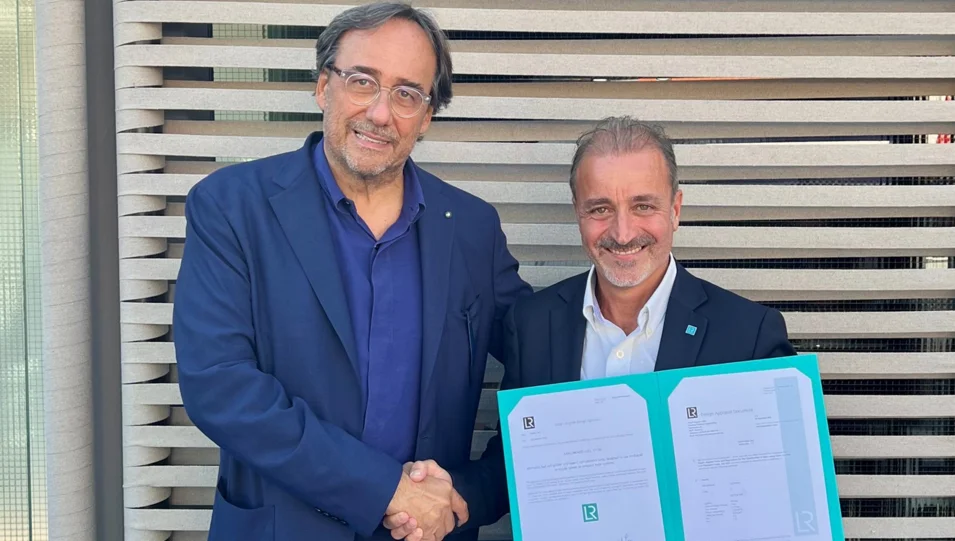
In their turn the Dutch Feadship received a second Approval-in-Principle (AiP) by Lloyd’s Register on their compact multi-fuel system design, which is going to be the starting point for a few Feadship projects that are currently under development.
The key goal was to identify all aspects associated with the containment and handling of low-flashpoint fuels, as well as to engineer a safe and compact fuel system, capable of working with various kinds of fuel. Feadhip philosophy in mind is that the next generation of yachts has to be flexible and able to adjust to all possible changes in shipping fuel production and supply chains. Feadship multi-fuel system will be capable of operating on new fuels, while maintaining compatibility with the existing ones – both fossil and non-fossil.
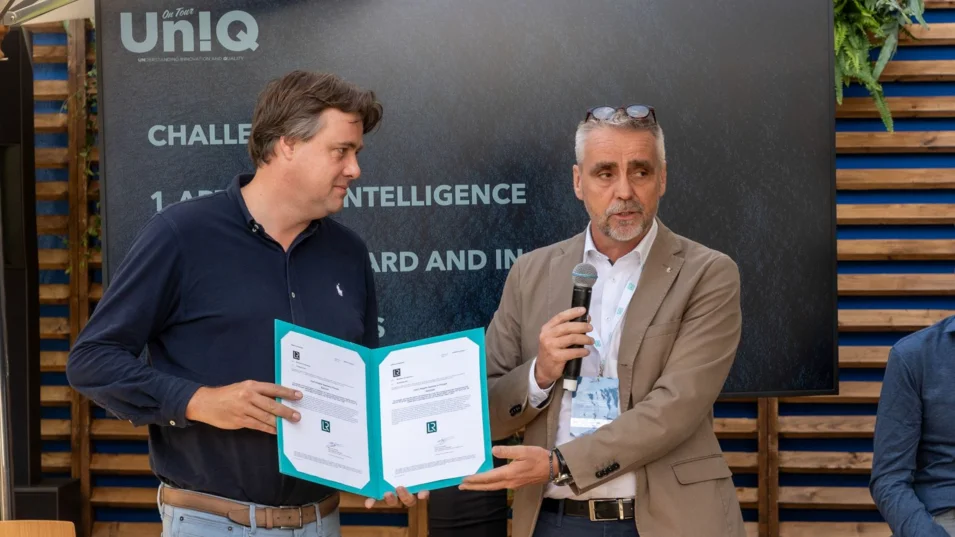
CRN shipyard, which is part of the Italian Ferretti Group specializing in superyacht construction, received an approval from RINA (Italian Naval Register) on their most efficient implementation of Fuel Cell technology on board CRN yachts. The shipyard has developed two concepts: with hybrid propulsion for yachts from 60 to 70 meters and with a diesel-electric power plant for yachts from 75 to 90 meters. Both concepts imply the use of PEM technology (proton-exchange fuel cells) that is popular with car manufacturers. The source of fuel is hydrogen, derived from methanol. The system can be optimized to ensure predefined levels of performance and autonomy. For instance, it allows for several days in full hotel mode without diesel generators running or for sailing in zero emission mode for a few hours. It is not yet known when the first CRN yacht of this architecture will be presented to the public.
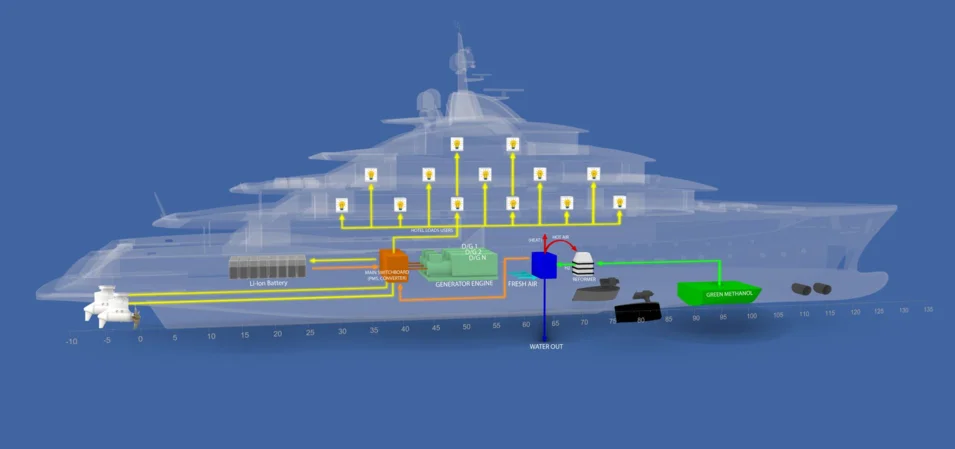
One can suggest that over the next few years we are going to see quite a lot of live examples of ‘decarbonized’ superyachts. Only time will tell whether this technology will become wide-spread and pass on to smaller size yachts or remain an expensive fancy toy, heart-warming for the boat owners that do care about the environment. One thing is certain: almost all of the most advanced shipyards in the world are working actively on the developments in this area, which means that the demand for such solutions is quite high.
You have successfully subscribed to our newsletter
